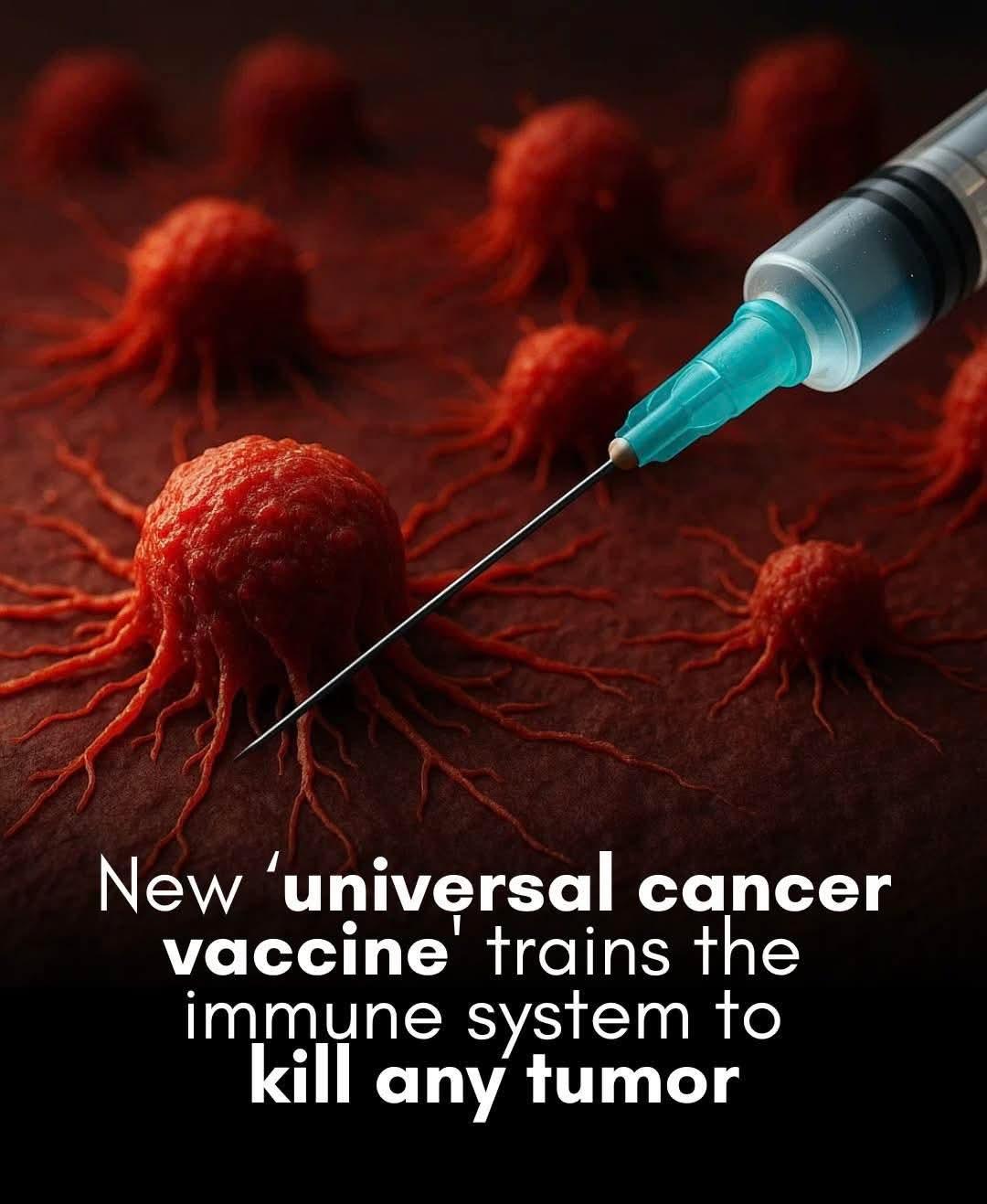Scientists may have just found the keys to a universal cancer vaccine — no chemo or radiation.
A groundbreaking mRNA vaccine developed by scientists at the University of Florida could signal the dawn of a universal cancer treatment. Unlike traditional therapies that target specific tumor types, this experimental vaccine teaches the immune system to identify and attack cancer cells broadly—regardless of type. Using a mechanism similar to COVID-19 vaccines, the jab delivers genetic instructions that encourage immune cells to recognize and destroy tumors by exposing cancer cell markers like PD-L1, making them more visible to the body’s natural defenses. In animal trials, the vaccine not only cleared resistant melanoma tumors but also proved effective against brain, bone, and skin cancers—all without surgery, chemotherapy, or radiation.
What makes this development especially significant is its potential to be used as an "off-the-shelf" solution, bypassing the need for customized treatments tailored to each patient's unique cancer profile. This universal strategy may offer a faster, more scalable way to treat patients, especially those with difficult-to-treat cancers. As researchers prepare for human trials, the hope is that this mRNA technology—once thought to be limited to virus defense—could revolutionize how we fight cancer across the board.
A groundbreaking mRNA vaccine developed by scientists at the University of Florida could signal the dawn of a universal cancer treatment. Unlike traditional therapies that target specific tumor types, this experimental vaccine teaches the immune system to identify and attack cancer cells broadly—regardless of type. Using a mechanism similar to COVID-19 vaccines, the jab delivers genetic instructions that encourage immune cells to recognize and destroy tumors by exposing cancer cell markers like PD-L1, making them more visible to the body’s natural defenses. In animal trials, the vaccine not only cleared resistant melanoma tumors but also proved effective against brain, bone, and skin cancers—all without surgery, chemotherapy, or radiation.
What makes this development especially significant is its potential to be used as an "off-the-shelf" solution, bypassing the need for customized treatments tailored to each patient's unique cancer profile. This universal strategy may offer a faster, more scalable way to treat patients, especially those with difficult-to-treat cancers. As researchers prepare for human trials, the hope is that this mRNA technology—once thought to be limited to virus defense—could revolutionize how we fight cancer across the board.
Scientists may have just found the keys to a universal cancer vaccine — no chemo or radiation.
A groundbreaking mRNA vaccine developed by scientists at the University of Florida could signal the dawn of a universal cancer treatment. Unlike traditional therapies that target specific tumor types, this experimental vaccine teaches the immune system to identify and attack cancer cells broadly—regardless of type. Using a mechanism similar to COVID-19 vaccines, the jab delivers genetic instructions that encourage immune cells to recognize and destroy tumors by exposing cancer cell markers like PD-L1, making them more visible to the body’s natural defenses. In animal trials, the vaccine not only cleared resistant melanoma tumors but also proved effective against brain, bone, and skin cancers—all without surgery, chemotherapy, or radiation.
What makes this development especially significant is its potential to be used as an "off-the-shelf" solution, bypassing the need for customized treatments tailored to each patient's unique cancer profile. This universal strategy may offer a faster, more scalable way to treat patients, especially those with difficult-to-treat cancers. As researchers prepare for human trials, the hope is that this mRNA technology—once thought to be limited to virus defense—could revolutionize how we fight cancer across the board.
0 Kommentare
0 Geteilt
447 Ansichten



